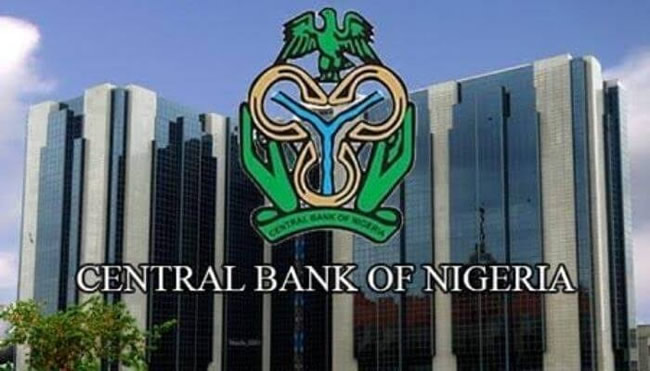Dollars, hoarding and Nigerians’ fate
The recent circular by the CBN to banks asking them to offload their dollars to customers just confirmed what many people had suspected: that there was a massive hoarding of dollars. It showed that the banks, too, were in the habit of hoarding the hard currency, which means that they were not paying out as […]

The recent circular by the CBN to banks asking them to offload their dollars to customers just confirmed what many people had suspected: that there was a massive hoarding of dollars. It showed that the banks, too, were in the habit of hoarding the hard currency, which means that they were not paying out as much dollars as they were supposed to give to their customers. Everyone knows that what the banks were doing was hoarding.
Before the CBN’s circular, the problem of currency speculation had been seen mostly as being perpetrated by people or companies that wanted to take advantage of the forex crisis in the country. But the knowledge that banks were holding back some dollars and/or adding other extraneous conditions to accessing those foreign currencies, was there.
Hoarding is a business strategy to protect the hoarder’s anticipated future position. It simply means withholding a product now to sell later at a higher price, perhaps after the competition would have sold out their stock. In this case, hoarding is a product of expectation.
Hoarding the dollars by banks means that the banks do not believe in what the central bank is doing. They believe that the dollar will continue to rise against the naira, which means that selling it now would not be in their best interest.
- APC defends Tinubu, says Nigeria’s problems generational
- Man arrested for alleged raping of 6-year-old girl in Minna graveyard
Compare this with the practice of short-selling in the stock market, which is a criminal act. Selling a stock short by a broker, just like hoarding, is a product of expectation. In this case, the stockbroker expects that the price of a stock will fall in the future. Based on this expectation, the broker can sell some of the stocks in a client’s portfolio and wait for the price to eventually fall. He now buys the stock back at a lower price and makes a profit from the price differential.
The two acts discussed above are far apart; one is a normal business act, the other a criminal act. But the common factor between them is expectation. What businesses expect has a great impact on the ultimate business direction. Businesses work towards the actualisation of their expectations. It feeds into their cost and revenue projections.
Currency hoarding or speculation has produced winners and losers in the current crisis created by the government’s decision to float the naira. The winners have been enjoying their luck. The losers have similarly been licking their wounds silently.
Indeed, many people, traders, and business people especially, have had their fingers burnt in the process of hoarding and speculating on the dollars. There have been stories of importers who bought dollars to hold. As the dollar began to fall on one of those rare occasions, some of them were forced to offload their dollar holdings by placing orders for goods.
Just then, the opposite happened! The dollar began to rise again as the naira began to receive its bashing in the forex boxing ring. Everyone knows that what our monetary authorities have done so far is just to throw the hapless naira into a walled ring from which the naira is not expected to come out until it wins the battle.
The gyrations that the naira has experienced sometimes have been due to actions or comments by the authorities, including the CBN, especially promises that were never kept or met. The Bank has on many occasions “overpromised” but “underperformed”. The regulator has been in the habit of saying more than it does or can do at a given point in time.
When the CBN announces that it will flood the market with dollars, the market believes it and responds accordingly. An increased supply of the green buck would mean that its price would fall (ceteris paribus). In a knee-jerk reaction, some of those who hold the dollar panic, and in a jiffy, offload. The naira gets a boost and strengthens against the dollar, which begins to receive the blows. But often this is just for a while.
I love the markets. I get excited about studying the markets, both commodities and financial markets. The financial markets are good believers. Promise them something or give them a signal, and they will believe you. They will respond appropriately to your signal.
Call it herd effect, if you will; it is a reality in markets where information is available to players. However, once the market discovers that there is something wrong with the information, it withdraws that faith. That’s why markets reverse gains they recorded in previous sessions.
The above scenarios have played out in a couple of instances in the current battle for the soul of the naira. For example, when the Nigerian National Petroleum Company Limited told Nigerians that it was concluding a loan package of $3 billion to stabilise the naira, this helped to prop up the embattled naira then. What happened next was also captured by the creation of the market.
Even in the latest efforts by the central bank, the order to the lenders produced some salutary effects on the foreign exchange market. The naira appreciated to about N1,350 to a dollar following the order. That was the immediate effect.
Let’s watch and see how far this impact will last. By yesterday (Tuesday, February 6), the exchange rate was tilting, with the dollar rising to about N1,500. What next will help the naira rise again?
